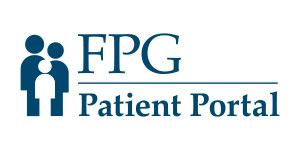With FPG Vascular Neurologist David K. Stone, MD, PhD
For the first time in a decade, the American Heart Association and the American Stroke Association have updated the official guidelines for stroke prevention. The change provides new guidance for preventing stroke in women, including during pregnancy, and places new emphasis on social aspects of stroke prevention and the specific benefits of the Mediterranean Diet.
“The updated guidelines for primary stroke prevention reflect some new discoveries,” says SMH-Venice Stroke Program Director and FPG Vascular Neurologist David K. Stone, MD, PhD. “They stress the importance of access to regular healthcare, as well as screening for and addressing adverse social determinants of health. I am happy to see the guidelines stress the importance of diet and exercise.”
“Prevention is key,” Dr. Stone continues. “The best way to avoid disability and death from stroke is to prevent the first stroke from occurring.”
Here are some of the Top Takeaways from the newly updated guidelines. Read the full report here.
Top Takeaways – New Tips on Stroke Prevention
- Promoting brain health through regular visits with a primary care doctor should begin at birth and be accessible to all.
- Proactive stroke prevention must take into account social determinants of health, such as socioeconomic status, physical environment, language barriers or literacy skills, which can impact access to necessary care and other stroke risk factors.
- Sedentary behavior leads to increased stroke risk, making “regular moderate to vigorous physical activity” essential to stroke prevention.
- Those with high or intermediate risk of stroke, even with no history of cardiovascular disease, should adhere to the Mediterranean Diet, supplemented with nuts and olive oil, to help prevent stroke. For more from the AHA on the Mediterranean Diet, click here.
- Maintaining a healthy blood pressure remains critical for stroke risk reduction.
- Management of hypertension is essential to the prevention of pregnancy-related stroke.
- Endometriosis, premature ovarian failure, and early-onset menopause can all contribute to increased risk of stroke and should be taken into account when screening for stroke risk.
- People taking estrogens also have increased risk of stroke, which should be accounted for when screening.
More Resources
To learn more about neurological services at Sarasota Memorial, where you’ll find the only nationally recognized and state-certified Comprehensive Stroke Center in Sarasota County, click here. For more information on neurological services with First Physicians Group, click here.
Have you or a loved one experienced a stroke? Ask your doctor about Sarasota Memorial’s outpatient clinic dedicated to preventing secondary strokes, by providing resources, therapies, and support.
Also check the SMH Calendar for info on the monthly Lifelong Stroke Education & Support Group, meeting the second Wednesday of each month at 1pm. Call (941) 917-1043 for more information.
Related Blogs
 David K. Stone, MD, PhD is a vascular neurologist with First Physicians Group. For more information, click here.
David K. Stone, MD, PhD is a vascular neurologist with First Physicians Group. For more information, click here.


